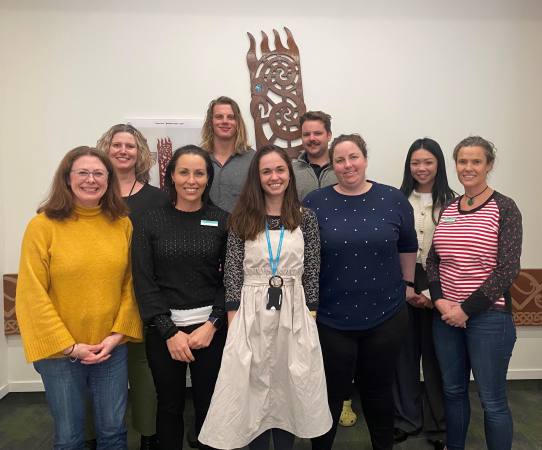
Clinical Pharmacists
WellSouth’s clinical pharmacist team is an important part of your healthcare team. They are specialists in medicines and how they work and interact.
Some of our clinical pharmacists are also pharmacist prescribers who can prescribe your medicines and help you better manage chronic, long-term health conditions.
Both clinical pharmacists and pharmacist prescribers work directly with patients and liaise with the general practice team, to make sure your medicines help you get better and stay well.
If you're looking for a pharmacy in your area, click here.
Why might I see a Clinical Pharmacist?
You will see a clinical pharmacist when you need extra expert advice on your medicines. If your condition needs diagnosing, you will see a GP first, who may then refer you on to a practice nurse or clinical pharmacist.
How can a Clinical Pharmacist help?
Medication review
The clinical pharmacist can review all your medicines, discuss how they are working for you, and carry out health checks, such as taking your blood pressure. They can also help you with lifestyle changes to help you manage your condition, and check you are still using inhalers and devices correctly.
If you are taking medicines long-term, you should be seen for a review at least once a year.
Medicines reconciliation
The clinical pharmacist will also ensure that your current prescription reflects what medicines you are taking. This is called medicines reconciliation. It’s important that health providers have an up-to-date list of medicines you are taking, especially if you go into hospital.
After hospital discharge
If your medicines have been changed while you were in the hospital, the clinical pharmacist can help explain these changes to make sure you get the maximum benefit from these medicines.
Medication side effects
If you have side effects with your medicines, you and the clinical pharmacist can discuss this, and work together with your GP to find a solution, such as changing your medicine or the dosage. If you are taking a number of different medicines, the clinical pharmacist can help make sure they are working safely together.
Education
If you have any questions about your prescription medications or medical devices, the clinical pharmacist can answer them for you.
Your Appointment
Just as when you see a GP or a practice nurse, you’ll see a clinical pharmacist in a private consultation room. In some cases, the pharmacist may visit you at home.
Seeing the pharmacist does not replace an appointment with a doctor. You will still see your GP when you need to.
A clinical pharmacist will not give you your medicines. You should collect your medicines from a community pharmacy in the usual way.
Be sure to let your practice know if you need to cancel or reschedule your appointment.
All pharmacists are registered with the Pharmacy Council.